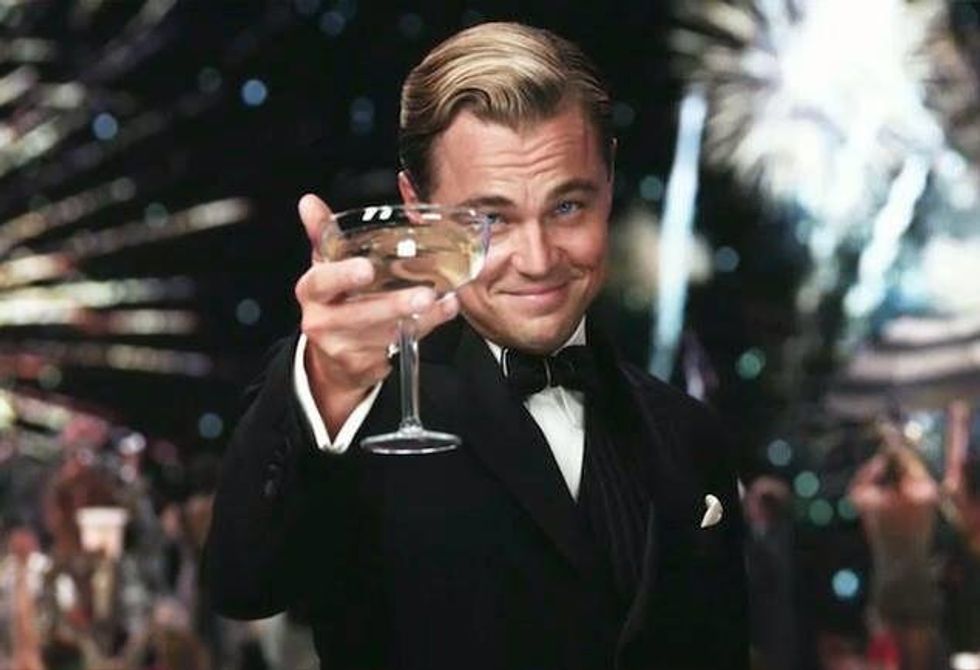"The Great Gatsby" is the epitome of the highlights of the 20s: the massive parties, the extravagant wear and abundance of illegal alcohol. A book set within the midst of celebration, F. Scott Fitzgerald's novel portrays Jay Gatsby as nothing more than living the American dream: a life of luxury and a constant, unlimited party. However, as soon as we realize Gatsby's success, we're sucked into a whirlwind of issues coming with being rich, most importantly one Gatsby most struggles with: finding love.
We soon find that what Gatsby most struggles with his letting go of the past: he stuck in a time warp before the war began, when he served as a soldier, where he lived a happy life because he fell in love with Daisy. As quickly as their love formed is as quick as it fell to ruin. In Gatsby's absence, Daisy grew tired of waiting and fell to Tom, another rich man who consistently cheats on her with other women. Undeserving, Gatsby spends the remainder of the book and his life chasing after Daisy in hopes of reviving the past, their love and finding happiness.
If you've ever taken a language arts class, you know metaphors are an author's best friend. As you can most likely assume, Fitzgerald uses Daisy as a metaphor for the American dream: the white picket fences, steady job, family and overall contentment with life. Gatsby fell in love with Daisy and chased her until death: caused on her behalf as well, even after their break and her marriage. Through trying to bring back the past and continue his obscured view of Daisy, his obscured view on life, Gatsby fell into the trap, leading to his ultimate disappointment and failure to attain the American dream.
So what is Fitzgerald saying? What was the message high school language arts teachers across the country trying to teach us?
Through Gatsby and his futile attempts to control the past, we learn the truth: no one can change the past as well as the true feelings one holds in their heart. As humans, we hold the tendency to chase after smoke and mirrors — impossible thoughts and expectations because it is what we believe to hold true. More specifically, we are all given life and liberty, but it is the pursuit of happiness that separates us all because it is a separate journey; no two people can share the same pathway to happiness. It's what Gatsby failed to learn: in his attempts to live a lavish style to match that of Tom's, he died without ever attaining true happiness.
Tangentially, Fitzgerald points to the truth of the maxim that money can't buy happiness: when it comes to loss, love and other strong emotions, they can not be bought, only felt. By trying to buy Daisy's love, Gatsby created his own false identity, forgetting to look into himself and instead pouring himself into others with his massive parties, his name and fame. It's why in the end, no one came to Gatsby's funeral. No relationships were made; he was only harvested by others around him.
To be truly happy is a concept that has no dollar value, has no correct path and no predicted end. It's a step in life, one that we can only take personally and reap the benefits of.














